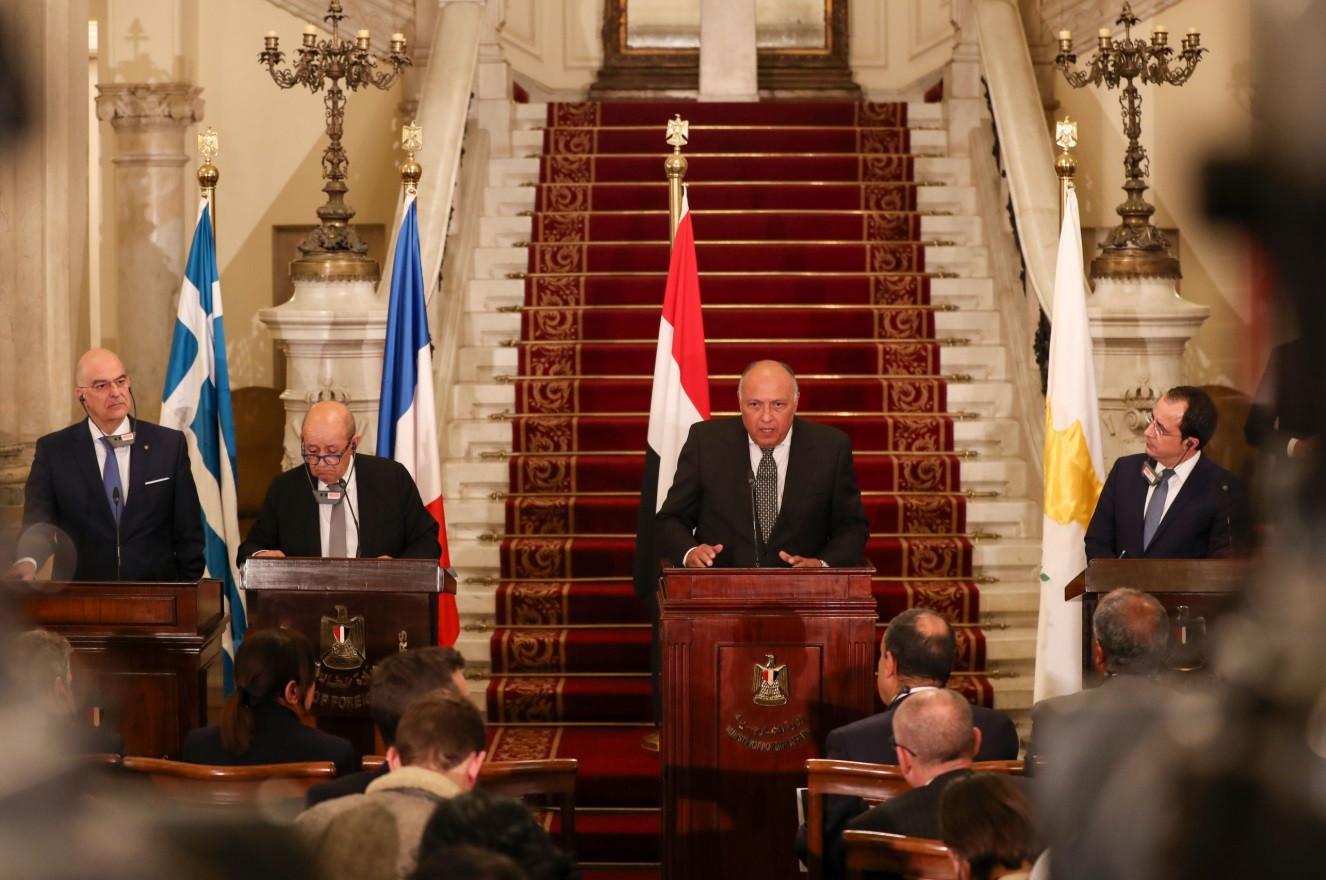
France, Greece, Egypt and Greek Cyprus on Jan. 8 declared “null and void” agreements between Ankara and Libya assigning Turkey rights over a vast area of the eastern Mediterranean.
A statement issued by the foreign ministers of the four countries - who met in Cairo - said the 'controversial agreements' undermined regional stability.
Their Italian counterpart, who also took part in the meeting, did not sign the statement.
The two agreements denounced by the four Mediterranean states are a military pact and a maritime deal, signed in November by the head of Libya’s Government of National Accord Fayez al-Sarraj and Turkish President Recep Tayyip Erdoğan.
Ankara is a key ally of the GNA in its fight against the Libyan National Army (LNA) commander Khalifa Haftar.
Libya has seen a recent escalation of the turmoil that has gripped the oil-rich country since a NATO-backed uprising killed former Libyan President Muammar Qaddafi in 2011, with the LNA trying to capture Tripoli from the UN-recognized government.
On Jan. 8, Erdoğan announced that Turkey has deployed 35 soldiers to Libya to support the GNA in a non-fighting capacity against the LNA.
But it is the maritime delimitation agreement that has outraged Greece, Egypt, and Cyprus, awarding Turkey exploration rights in a gas-rich area of the Mediterranean where the three states also have significant interests.
The agreement “infringes upon the sovereign rights of third states, does not comply with the law of the sea” and does not have legal enforceability, the ministers said in their statement.
Turkey, Greece to hold regular political consultations after EastMed dispute

The ministers “reiterated the necessity of full respect of the sovereignty and the sovereign rights of all states in their maritime zones in the Mediterranean.”
The 2,000-kilometer (1,200-mile) pipeline will be able to transfer between nine and 12 billion cubic meters a year from offshore gas reserves between Israel and Greek Cyprus to Greece, and then on to Italy and other southeastern European countries.
Turkey argues that the Greek Cypriot government should not have started gas explorations before reaching a settlement in reunification talks with the Turkish Cypriots, and that the mineral wealth belonged to both communities.
Turkish Cypriot leader says EastMed project costly, not conducive to Cyprus settlement

It is estimated that the transfer cost of the natural gas would be three times cheaper if the pipeline passes through Turkey.
In 1974, following a coup aiming at Cyprus’ annexation by Greece, Ankara had to intervene as a guarantor power. In 1983, Turkish Cyprus was founded.
The decades since then have seen several attempts to resolve the dispute, all ending in failure. The latest one, held with the participation of the guarantor countries Turkey, Greece, and the U.K., ended in 2017 in Switzerland.